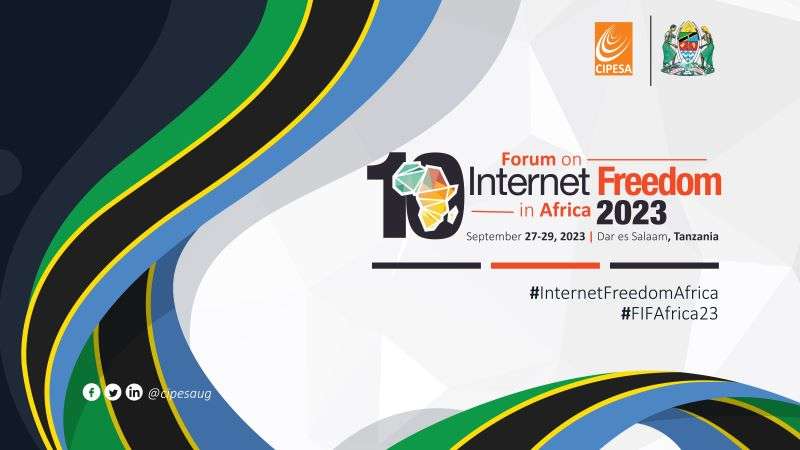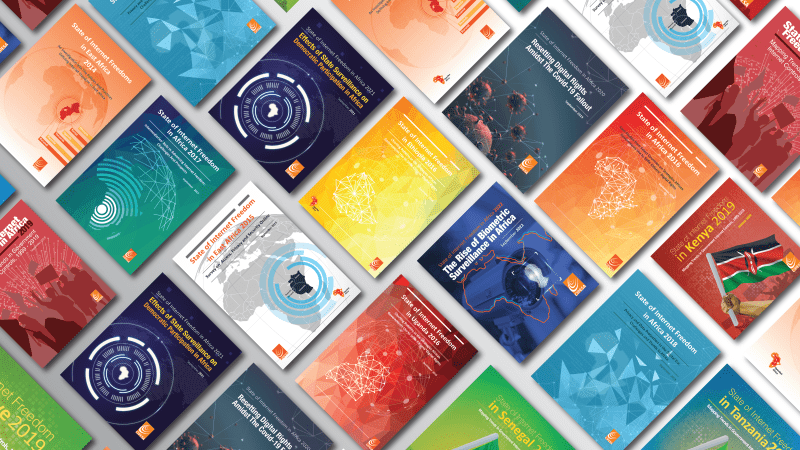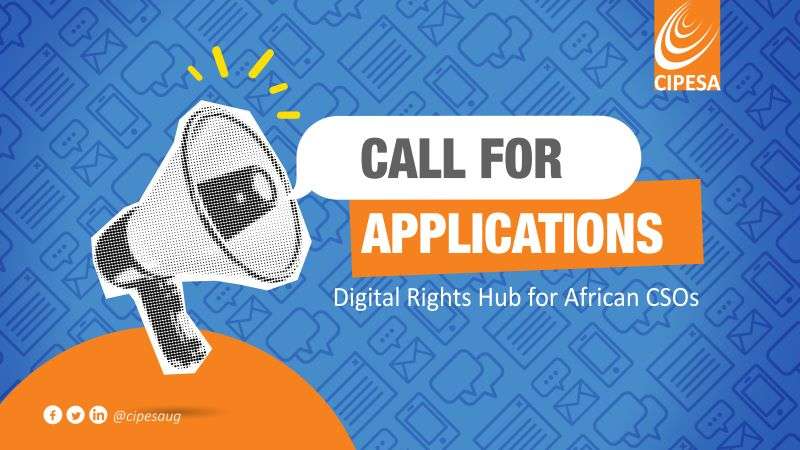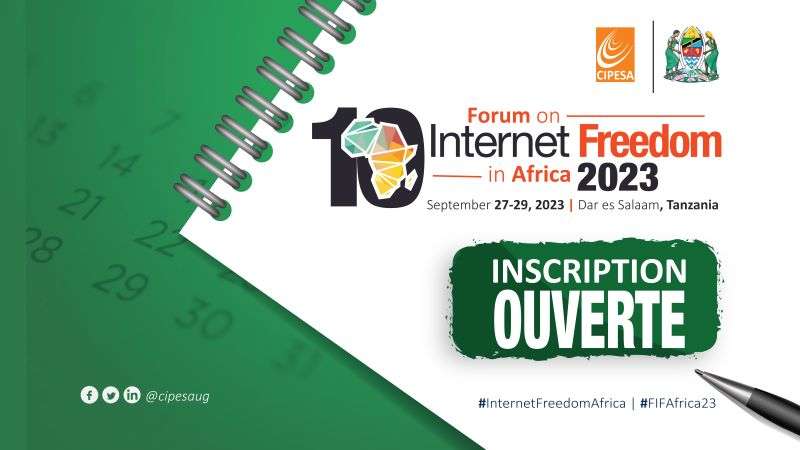By CIPESA Writer |
The tenth edition of the annual Forum on Internet Freedom in Africa (FIFAfrica23) is just under ten days away. The Collaboration in International ICT Policy for East and Southern Africa (CIPESA) will this year alongside the Ministry of Information, Communication and Information Technology of the United Republic of Tanzania host this special edition of FIFAfrica23 in Dar es Salaam, Tanzania. This is in line with the country’s progressive shift to advance digitalisation for sustainable development.
As at December 2022, Tanzania had over 60 million phone subscriptions, translating into a penetration rate of 98%, an estimated 31.1 million internet connections, and 40.9 million registered mobile money accounts. The national Development Plan and Tanzania Development Vision 2025 prioritise the digital economy and outline various intervention areas for accelerating broadband penetration, access, innovation, eServices and local content development, among others. Further, the National ICT Policy, 2016 recognises that ICT is central to social and economic transformation.
Tanzania outperforms many other African countries in developing locally relevant mobile content and applications, including content in local languages. Tanzania was among the six African countries eligible to join the Open Government Partnership (OGP) at its launch back in 2011. Whereas the country later withdrew from the Partnership, its OGP Action Plans drawn up at the time, reflected Tanzania’s commitment to the four pillars of transparency, accountability, citizens’ participation, and technology and innovation. Indeed, among the reasons cited for the withdrawal from the OGP was its membership of the African Peer Review Mechanism (APRM) whose objectives were similar to those of the OGP.
Notable government initiatives include the Tanzania National ICT Broadband Backbone (NICTBB) and the Universal Communications Service Access Fund (UCSAF) through which connectivity and infrastructure has been extended countrywide including in key sectors – education, health and gender equality. The Digital Tanzania Programme is also underway with the aim to ”increase access to affordable, high quality internet services for government, businesses and citizens, and to improve the governments’ capacity to deliver digital public services”with three components: the Digital Ecosystem, Digital Connectivity, and Digital Government Platform and services. Meanwhile, the Data Protection and Privacy Bill tabled in 2014 was passed in November 2022.
Nonetheless, there have been concerns including a culture of secrecy among government officials, the cease of live broadcasts of parliamentary proceedings and disruptions to social media and online communication platforms. There has also been problematic legislation such as the restrictions on access to information under Statistics Act of 2015 as amended; mandatory registration and accreditation of journalists as well as harsh penalties under the Media Services Act, 2016; and the Cybercrimes Act, 2015, which criminalises offences related to computer systems and ICT.
According to the Global Connectivity Index of 2020, Tanzania is ranked 78 out of 79 countries in internet affordability. The high cost of access locks several Tanzanians out of the digital society. In July 2021, Tanzania introduced a new airtime levy which users pay to telecom operators as they top-up airtime. The airtime tax, together with a 17% excise duty, 18% Value Added Tax (VAT) and a levy on mobile money transactions pose significant threats to the country’s progress in digital and financial inclusion.
Under the leadership of its first female President, Samia Suluhu Hassan, a proponent for civil rights and women’s rights,has undergone reforms aimed at enhancing the country’s civic space and digitalisation agenda. Notably, proposals to amend the Online Content Regulations 2020 which entrenched the licensing and taxation of bloggers, online discussion forums, radio and television webcasters, and repressed online speech, privacy and access to information. The amendments contain various positive elements such as removal of some ambiguous specification of obligations of service providers, the reduction of licensing fees, annual and renewal fees, and certainty of definitions of “online media content services” and “online content aggregators”.
The amendments also relieved internet café operators from a number of obligations, including installation of surveillance cameras; assignment of static public IP addresses to all computers used; keeping of proper service user register; and having mechanisms to filter access to prohibited contents which were hard for café operators to comply with. However, the regulations maintained that mainstream media licensees still require an Online Media Services Licence for simulcasting or re-publication of content through the internet.
As Tanzania navigates a path towards positioning itself as a progressive state, it presents a unique opportunity for learning and engagement on the future of technology in Africa for economic growth, civic participation, meaningful connectivity and human rights.
The main Forum event takes place on 28-29 September 2023 and is preceded by a series invite-only pre-events (26-27 September 2023) which entail workshops, trainings and strategic meetings. See the event agenda and speakers!





